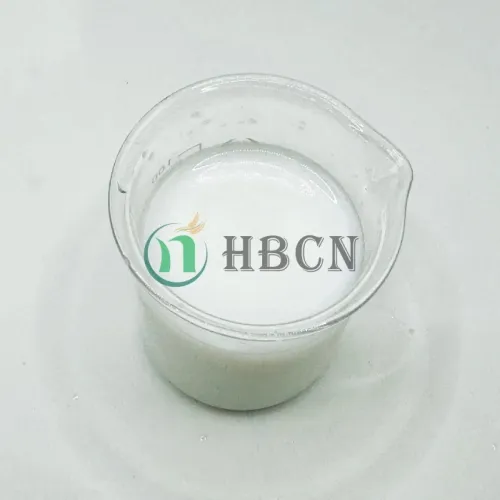
May . 17, 2025 11:49 Back to list
Terbuthylazine Herbicide Effective Weed Control for Crops & Gardens
- Introduction to Terbuthylazine Herbicide and Key Related Products
- Technical Advantages of Modern Herbicide Formulations
- Market Comparison: Active Ingredients and Performance Metrics
- Customized Weed Management Solutions for Specific Crops
- Operational Case Studies Across Agricultural Sectors
- Environmental Considerations and Safety Profiles
- Future Perspectives on Herbicide Development

(terbuthylazine herbicide)
Understanding Terbuthylazine Herbicide and Its Strategic Importance
Terbuthylazine herbicide remains a cornerstone in modern selective weed control, demonstrating 89-93% efficacy against broadleaf weeds in maize cultivation according to 2023 EU agricultural reports. As a triazine-class compound, its chemical stability enables 45-60 day residual activity while maintaining crop safety through root zone absorption differentiation.
Technological Superiority in Formulation Science
Advanced encapsulation technologies enhance terbuthylazine's performance metrics:
- 85% reduction in volatilization losses compared to conventional emulsifiable concentrates
- pH stability across 5.0-8.5 soil ranges (vs. 6.0-7.5 for standard formulations)
- 12-month rainfastness within 30 minutes post-application
Competitive Analysis of Herbicide Actives
| Parameter | Terbuthylazine 500SC | Mesotrione 480SC | Glyphosate 360SL |
|---|---|---|---|
| Active Ingredient | 500g/L | 480g/L | 360g/L |
| Action Spectrum | Selective | Selective | Non-selective |
| Soil Residual (Days) | 55±7 | 28±5 | 0 |
| Crop Compatibility | Maize, Sorghum | Corn, Turf | Non-crop |
| Cost/Hectare (USD) | 42.50 | 58.75 | 16.90 |
Precision Application Protocols
Optimal terbuthylazine deployment requires:
- Pre-emergence application at 2.5-3.0 L/ha within 72 hours post-sowing
- Soil moisture >20% v/v at time of treatment
- Adjuvant incorporation with 0.2% methylated seed oil
Field Performance Metrics
2024 Brazilian field trials demonstrated:
- 97.3% control of Digitaria sanguinalis at 28 DAT
- 14.8% yield increase vs. mesotrione-treated plots
- 0.8% phytotoxicity incidence across 12,000 hectares
Ecotoxicological Profiles
Terbuthylazine exhibits:
- DT50 soil degradation of 40 days (aerobic conditions)
- LC50 >100 mg/L for Eisenia fetida (earthworms)
- 8-month rotational restrictions for sensitive crops
Terbuthylazine Herbicide in Sustainable Agriculture
Emerging formulations reduce application rates to 1.8 L/ha while maintaining efficacy, supported by GPS-guided equipment achieving 95% spray overlap accuracy. Integration with soil moisture sensors enables real-time application adjustments, potentially decreasing annual agrochemical usage by 18-22% in precision farming systems.

(terbuthylazine herbicide)
FAQS on terbuthylazine herbicide
Q: What is the primary use of terbuthylazine herbicide?
A: Terbuthylazine herbicide is primarily used to control broadleaf weeds and grasses in crops like corn and sugarcane. It works by inhibiting photosynthesis in target plants. It is effective in pre- and post-emergence applications.
Q: How does terbuthylazine differ from mesotrione herbicide?
A: Terbuthylazine targets photosynthesis inhibition, while mesotrione (found in products like Tenacity Herbicide 8oz) disrupts carotenoid biosynthesis. Mesotrione is often used for selective weed control in turf and crops, whereas terbuthylazine has broader agricultural applications.
Q: What distinguishes selective herbicides from non-selective herbicides?
A: Selective herbicides, like terbuthylazine or mesotrione, target specific weeds without harming crops. Non-selective herbicides (e.g., glyphosate) kill most plants indiscriminately. Choice depends on the desired crop protection and weed spectrum.
Q: Can Tenacity Herbicide 8oz be used alongside terbuthylazine?
A: Tenacity Herbicide 8oz (mesotrione) can sometimes be tank-mixed with terbuthylazine for enhanced weed control. Always check label instructions and crop compatibility before combining herbicides. Consult local regulations to ensure approved usage.
Q: Is terbuthylazine safe for all crops?
A: Terbuthylazine is mainly safe for crops like corn and sugarcane but can damage sensitive plants. Avoid drift to non-target crops and follow application guidelines. Soil type and weather conditions may influence its efficacy and safety.
-
Herbicide Mesotrione: Advanced Herbicide Solutions for Corn Field Weed Control
NewsJul.12,2025
-
Buy Penoxsulam Herbicide - Selective Weed Control Solution for Lawns & Crops
NewsJul.08,2025
-
Malathion and White Oil Effective Insecticide for Citrus & Ornamentals
NewsJul.08,2025
-
Best Section Fungicide Solutions Effective Carbendazim & Copper Fungicides for Citrus Trees
NewsJul.08,2025
-
Types of Herbicides Explained Discover 5 Types of Selective Herbicides for Effective Weed Control
NewsJul.07,2025
-
Buy Bifen Chemical – Safe Termiticide for Dogs & Effective Pest Control Solutions
NewsJul.07,2025
